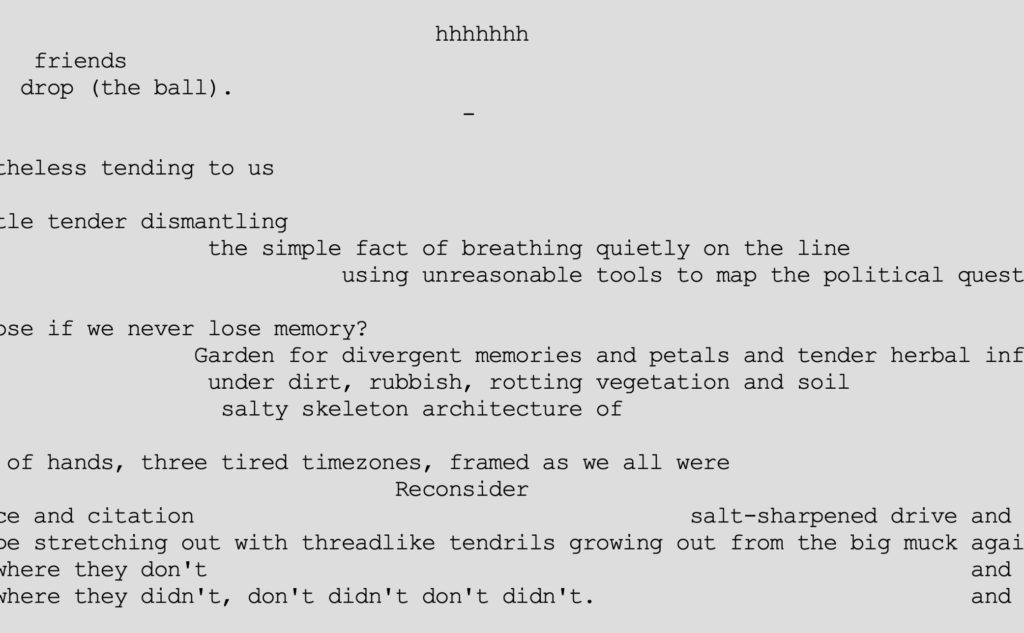aftermath * the nth of letting go / P * training in the everday (new modes of living together) by: oracle(s)
With gratitude to the participants of the workshop Future(s) Otherwise: Dreaming with Oracle Practices, and in dialogue with the Black Feminist Poet(h)ical writers that have formed this project, we share this writing practice of skeletal architectural text sketching. Developed through a series of instructions, in this practice we collectively build off of individual poems written in response to the oracle(s) workshops. This practice is similar to our oracle(s) practice of finding connecting, emergent points of reflection and interpretation.(.notes) soulmates sharing organs.

https://www.yourworldoftext.com/~snoddy/oracles
The poem aftermath * the nth of letting go / P * training in the everday (new modes of living together) was generated by a workshop engaging methods from Black Feminist Poet(h)ics, and asking questions about our computational environments that took place in the context of the New Alphabet School edition #Caring in June 2020. Through a guided process of welcoming, writing, choosing, reading and intuiting, the participants posed questions to an oracle that allowed for thinking the world otherwise. The oracle functioned as a source to work with, not to extract from. In the workshop the oracle was the text: M Archive: After the End of the World, the 2018 book of poetry from Alexis Pauline Gumbs. Rethinking what ethics for computational practices are, the authors propose oracle(s) as a critical-technical practice for opening up possibilities and imaginations for accountability that arise within automation and digitalisation. Oracle(s) demands that we think the world differently and practices what it might mean for all of us to be free.